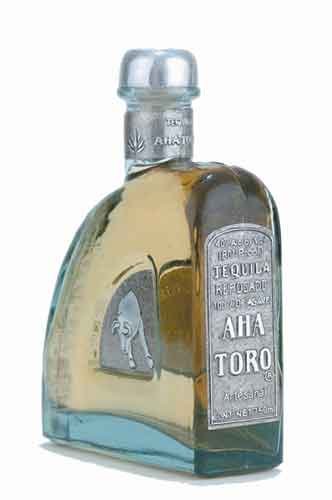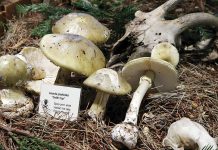On the final night of her four-day trade mission last July 12,
Washington state Gov. Chris Gregoire hosted a reception at an
old-style Mexican hotel here to toast the signing of a new
deal.
A Jalisco distiller of a premium brand tequila and the
Washington importer who owns exclusive rights to sell it in the
U.S. had agreed to expand their partnership to the Philippines,
South Korea and Vietnam.
On the final night of her four-day trade mission last July 12, Washington state Gov. Chris Gregoire hosted a reception at an old-style Mexican hotel here to toast the signing of a new deal.
A Jalisco distiller of a premium brand tequila and the Washington importer who owns exclusive rights to sell it in the U.S. had agreed to expand their partnership to the Philippines, South Korea and Vietnam.
A straightforward trade deal, right?
Not for Sang Chae, the tequila importer from Washington.
How did Sang Chae get here?
His father, Tae Chae, had graduated from the selective and prestigious Seoul National University. He taught high school for a time then managed a furniture business that traded with Japan.
Tae remembers his firstborn son, at an early age, as a crybaby. That observation shaped the father’s future parenting decisions.
“He was a little mentally weak, but his school achievement was pretty good,” said Tae, now a semi-retired real estate broker living in Fife.
In South Korea and Tacoma, he enrolled Sang in tae kwon do training. After Sang graduated from high school, “I pushed him to go into Army ROTC,” Tae said. “I thought it make him mentally and physically strong.”
In Korean culture, father rules. “Nothing I did seemed good enough for him. But I thought he was a god,” Sang said of his father.
So Sang joined the ROTC, which paid for his business degree from the University of Washington. His tour as an Army lieutenant took him to the demilitarized zone in between North Korea and South Korea.
But when the Army started to downsize in 1988, it offered its lieutenants the chance to shift to the National Guard before their four-year active-duty commitment expired.
Tae advised his son to get out. So he did.
Back home in South Tacoma, Tae Chae had evolved into a successful real estate broker, working primarily with Korean clients. But Sang had trouble finding work.
He borrowed money from his parents to open a neighborhood minimarket in Tacoma. He wanted a master’s degree in business. But instead he enrolled in the University of Puget Sound Law School, at the suggestion of his father.
“That was the toughest period of my life,” Sang said. “The store didn’t make any money. Many days I could not afford lunch. But once a week I would go out to eat at a Korean restaurant on South Tacoma Way. I’d see all the people at other tables eating barbecued pork and drinking soju” – a Korean rice liquor.
“I couldn’t afford that. I remember telling myself that one day I would be wealthy enough to eat all the barbecued pork and soju I wanted.”
The self-talk worked. Sang became a go-to attorney for many Korean business owners and investors in the area.
As his law practice boomed, Sang added husband, father of twin boys, and real estate investor to his resume.
In 1998, after the birth of William and Ryan, Sang decided to get into real estate to make money for his boys’ future. He and his wife, Connie, formed William Ryan LLC. Sang bought a dilapidated shopping center in Kent with less than half its retail space filled. He fixed it up, filled it with tenants and sold it five years later for double what he paid.
The deal-making hooked him. He bought and sold small office buildings. Today he owns hotels in Washington, California and New Mexico.
And then …
The story of Sang’s connection to tequila starts like a politically incorrect joke: “A white guy, a black guy and a Korean guy …”
Sang met with two of his close friends and mentors. They all wanted some new business to launch together.
Kyle Johnson, one of the top-rated attorneys in Seattle, and Percell Johnson, owner of an international custom packaging company in nearby Redmond, talked with Sang about their options – tequila, golf clubs, fruit juices.
Their favorite idea? Avocados. Not as food but as oils, lotions, bath butter, facial scrubs and makeup. They could buy organic in Mexico and ship to the Far East, where Sang had contacts.
Sang scouted opportunities in Mexico and came back empty. Meanwhile, on a separate trip to Mexico in search of packaging business, Percell met a hotel auditor who had a contact who had a brother-in-law who had an uncle who made a premium tequila.
Percell overnighted the odd-shaped bottle of Aha Toro to a friend – Carl Horton, president and CEO of The Absolut Spirit Co. – in New York. Percell asked for an expert taste test and some advice.
“He said, ‘This is a great product. Sign it up if you can,'” Percell recalled.
But why would Hector Lizrraga Castelo and his wife, Maria Lopez Garibay, entrust Aha Toro’s future in the U.S. – potentially its largest market – to three guys from the Puget Sound region who had zero experience between them with liquor? Even if they did, would the state Liquor Control Board allow them to sell it in Washington’s crowded liquor stores?
Sang’s friends warned him off the venture.
“A lot of people said we’re crazy to get into this liquor business.” he said. “We figured if we couldn’t sell it, we could always drink it.”
Even Percell Johnson’s friend with Absolut told him launching a new brand in a state like Washington would require a $10 million campaign.
“He told me, ‘You guys don’t have that kind of capital to invest. How are you going to do it?'”
They didn’t know. But they first had to win the right to import Aha Toro before they worried how to persuade people to buy it.
They also didn’t know four other U.S. companies, all bigger with spirits industry experience, were courting Aha Toro. Yet Sang flew to Los Angeles to meet Hector and Maria for the first time in December 2004.
Did he make a good impression?
“You really want to know the truth? We didn’t know what to expect,” Maria recalled with a laugh earlier this month.
As they talked with Sang that day in 2004 and over the next six months, Hector and Maria decided they could trust him.
So Sang, Percell and Kyle won the right to import Aha Toro to the U.S. But they needed to work state by state to get government approvals.
Now you can buy Aha Toro in five U.S. states, and Sang expects to add at least three more by the end of the year.
This month Sang spent three days in Jalisco, visiting Aha Toro’s agave farm, distillery and bottle makers. Afterward Hector and Sang talked of their growing business – and their partnership.
“I made the right decision choosing Sang,” Hector said. “It is working very well. I like to have my business relationships with friends. You can have more lasting relationship than you can with a big company.”
Sang doesn’t speak Spanish. Hector doesn’t speak English or Korean. So they talk to each other through an interpreter.
Yet they do share one word. The men no longer refer to each other primarily as Hector and Sang. They most often call each other hermano. Brother.















